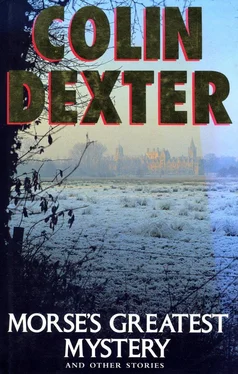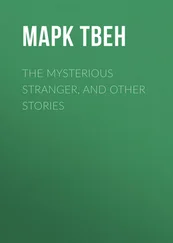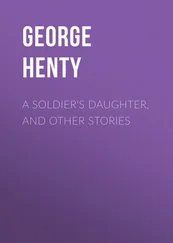(Henry Ward Beecher, Proverbs from a Plymouth Pulpit )
When, after Muldoon, he had squeezed himself through the gap in the fencing, Morse stood beside his charge and unlocked the handcuffs — almost immediately to realize that the man with only one leg and an elbow-crutch was considerably more nimble than he in negotiating the grassy slope at the rear of the Bannister Close flats.
But Muldoon was patiently waiting for his escort, on the concreted path, when Morse finally effected his descent, the palm of his left hand ever reaching out for support to the side wall of a row of sheds in which the residents of the block doubtless stored bicycles, and old lawnmowers, and (inevitably) virtually empty pots of house-paint.
The ground here was liberally littered with crisp and cigarette packets and all the usual detritus of a run-down neighbourhood: a circumstance most grievous to Chief Inspector Morse. But the first part of the operation had been accomplished successfully, and sufficient light was thrown from the lace-curtained, white-painted windows there for Morse to see exactly where they were. Behind the kitchen window of Number 13, beside a carton of Persil washing-powder, was a “Vote Conservative” poster, propped upside-down against a broken pane.
Morse had done his homework too.
“Sh!”
Morse raised a finger to his lips, then pointed across to the right — towards the far end of the flats. He spoke very quietly:
“Let me know if you hear a whistle. That’ll be Sergeant Wilkins, giving us the all-clear.”
Muldoon nodded.
“Or if you hear anything else for that matter,” mumbled Morse, moving over to Muldoon’s right.
For half a minute or so, the two men stood there side by side, unmoving, silent.
No noise.
Then, all of a sudden, to the left, at some point at the side of the sheds, there was the sound of a metal dust-bin lid, as if blown off its base in a gust of wind and now rumbling in a decelerating circle.
Muldoon whipped himself round immediately to face the direction whence the rattle had originated, crouching down instinctively, and remaining frozen for several seconds — both he and Morse (the latter still facing the opposite way) experiencing a frisson of fear, though each for a different reason.
“Wha’s tha’?” whispered Muldoon.
But Morse made no answer, and the night, beneath the darkly overcast sky, was wholly still once more.
No more noise at all, in fact; and if there had been a low whistle from the far end of the block, it was heard by neither escort nor prisoner.
Instead, Inspector Crawford now appeared at the double-fronted glass doors slightly further along; and first Muldoon, then Morse, stepped over the threshold into the living-room of Number 13 Bannister Close.
High definition is the state of being well filled with data. A photograph is, visually, ‘high definition.’
(Marshal McLuhan, Understanding Media )
Although he had lost his religious faith many years since, Morse still retained a sort of residual religiosity; and two days after the bizarre incidents just described, he was seated, in mid-morning, in his North Oxford flat, listening with awesome reverence to the Fauré Requiem — when the door-bell rang.
“Can I come in, Morse?” Ill-at-ease, on the doorstep, stood Inspector Crawford.
“Look,” he began, seated a minute later opposite Morse in the lounge. “I just want to thank you for your help, that’s all. I know you didn’t approve of what I did, but...”
“What’s gone wrong?” asked Morse, reluctantly switching off the CD player.
Crawford shook his head sadly. “Every bloody thing — that’s what! You remember that Beamish we had—”
“Much appreciated!”
“—it was a new thing of theirs. ‘Cask Pour,’ they call it.”
Morse knew all about such things: “All the flavour from a can you’d normally expect from a barrel — that’s the idea.”
“Yes, but that particular product only came onto the market on the 28th March — last Monday — you couldn’t get it before then. Big launch on the telly, in the papers...”
“So... so the can with Muldoon’s fingerprints on it...?”
“Yes! Couldn’t possibly have come from the flat at the time we raided it.”
“Will anybody notice, though?”
“Watson noticed.”
“Not PC Watson?”
“PC Watson!”
Morse raised his eyebrows. “I see what you mean,” he said slowly. “Not exactly an Einstein, is he?”
“And if he ? noticed it...”
“Ye-es.”
“All that palaver, Morse — and I go and act like a greenhorn.”
“Never mind. You’ve got your photographs.”
“No! They’re no bloody good either!”
“Don’t tell me your fellow forgot to put film in the camera?”
“Oh no. He took some fine photos. Marvellously clear — too bloody clear. You see, Muldoon almost never ventured out and about with his elbow-crutch — I’d forgotten that. And the original photo we took showed him with an artificial leg. Course it bloody did!”
“Oh dear! Did, er, did Watson spot that as well?”
“He did.”
“You know, if that fellow could only stop losing things, he’d probably make ‘inspector.’ ”
“He can have my job any time he likes!”
“Can’t you just cut the bottom off the photos?” suggested Morse.
“Trouble is, I’d cut off the flat numbers as well if I did that — the way they’ve turned out; then they might just as well have been taken in Timbuktu as in Bannister Close.”
“I take your point,” said Morse.
“Anyway, I didn’t come here to burden you with my troubles. As I say, I just wanted to thank you — in person. I didn’t want to say anything over the blower — can’t be too careful. So — if we can... if we can just, well, draw a veil over things? And I’m sorry I’ve been such a cretin.”
Morse got to his feet and stood in front of Crawford.
“Don’t say that.” He spoke in a kindly fashion, oblivious (it appeared) that this was the self-same word he’d used so recently himself to describe his fellow officer. “You could do with a drink.”
“I could do with two,” corrected Crawford.
Morse went to his drinks-cabinet and took out the Glenfiddich, at the same time switching on again, albeit softly, the “In Paradisum” from the Fauré Requiem .
I am a camera with its shutter open, quite passive, recording, not thinking.
(Christopher Isherwood, Goodbye to Berlin )
Four days later, on Wednesday 6 April, an oblong buff envelope (“Please Do Not Bend”) arrived by Registered Delivery at the Thames Valley Police HQ, addressed to Chief Inspector Morse.
Inside the envelope, together with two very glossy black-and-white photographs, was an invoice — and a letter:
Morse, old boy,
Sorry about the delay — Easter post and all that. Not bad, are they? Cheque please, as per invoice, asap. No extra fee charged for knocking over that bloody dustbin! What will you think of next?
Pity I couldn’t get the crutch in — he’d turned too far round. Interesting configuration of the left ear, though. I trust you’ll approve of the “topographically recognizable setting” (your specification). In fact the capsized Tory poster is a nice little prop, don’t you reckon?
By the way, what the hell are they doing voting Tory down there?
Yours aye,
Manuel (McS)
PS Did I mention the cheque — asap?
Morse looked at the two photographs; and like the Almighty surveying one of his acts of Creation, he saw that they were good.
Читать дальше












